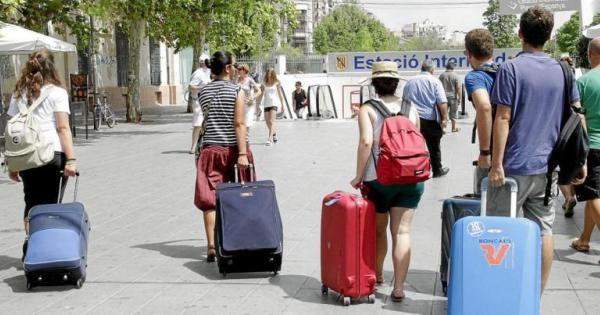By Humphrey Carter
Starting today, 1 July, European regulations governing short-term rentals will come into force in Spain, including a single register for short lets and it is feared that the new regulations could exclude 70% of the current supply and cause losses of 13.737 billion euros for the economy between July and December, according to a warning issued by the Spanish Federation of Tourist Housing and Apartment Associations (Fevitur).“Families who have booked an apartment or holiday home are likely to be left without accommodation, as a large part of the legal supply cannot be registered in the Single Digital Window system and will disappear from the platforms,” explained its president, Silvia Blasco, in a statement.
How to Check If Your Booking is CompliantTo make sure your accommodation is compliant with the new rules, here’s what to do: Look for the registration number: It should be clearly displayed on the property’s listing.Ask your host: If the number is missing, request it before confirming your booking.Check the platform’s policy: Ensure that Airbnb or Booking.com has taken the necessary steps to verify listings.
The organisation believes that the new system will lead to an increase in the black economy and a rise in illegal housing. The estimated losses amount to 8.57 billion euros for the Spanish economy in July, August and September, and a further 5.167 billion euros in October, November and December. Fevitur insists that this is a new system that encroaches on the tourism powers delegated to the autonomous communities.
Its president pointed out that the autonomous communities already have their own tourist registers, complaining that, far from complementing these tools and improving current processes, it is perceived as ‘a centralising instrument that duplicates existing structures and adds unnecessary complexity to the system’.
The federation has also criticised the ‘arbitrariness and lack of uniformity’ with which different property registries are applying the criteria for registering tourist accommodation, ‘already duly registered in the autonomous communities’. Therefore, these registers point out that there is no uniform protocol and that different situations are arising in each territory, even leading to additional procedures being required or registrations being denied without sufficient justification.
As Spain continues to implement changes in its tourism sector, travelers can expect a more streamlined and regulated experience in the coming years. The introduction of registration codes for short-term rentals represents a long-term strategy to manage tourism and create a more sustainable and responsible travel environment.
